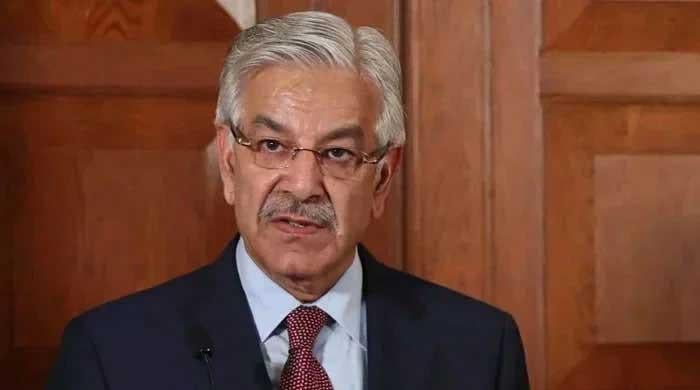Deteriorating Relations Between Pakistan and Afghanistan: Khawaja Asif
Defence Minister Khawaja Asif has expressed concern over the worsening relations between Pakistan and Afghanistan, warning of potential further deterioration, which Pakistan seeks to avoid.
In an exclusive conversation, the minister mentioned that relations with Afghanistan have historically been less than ideal, and he pointed to the export of terrorism from Afghanistan into Pakistan.
“Pakistan desires a relationship built on mutual respect and dignity, characteristic of good neighboring countries,” he stated, appealing for Afghanistan’s collaboration in addressing the issue of cross-border terrorism.
Tensions between Islamabad and Kabul have risen due to the interim Afghan government’s perceived inaction against terrorist organizations operating within its borders, amidst an increase in terror incidents in Pakistan.
Since the return of the Taliban in 2021, Pakistan has seen a rise in cross-border terror incidents, particularly in the provinces of KP and Balochistan.
The two countries share a 2,500-kilometre border with several crossing points that are vital for regional trade and interpersonal relations.
Terrorism remains a significant concern for Pakistan, which has urged Afghanistan to prevent its territory from being used by groups like the TTP for attacks within Pakistan.
These concerns were corroborated by a United Nations Security Council (UNSC) report, which revealed a connection between Kabul and the TTP, alleging logistical, operational, and financial assistance from the former to the latter.
During the interview, Asif noted that residents in areas harboring terrorists are generally aware of their presence.
“If an outsider enters a neighborhood, it would become known within a few days,” he stated, suggesting that silence from locals implies tacit agreement.
Asif affirmed that the safety of patriotic Pakistanis would be ensured.
Pakistan has accommodated Afghan refugees for over four decades, since the Soviet invasion and through the Taliban takeover in 2021. Some refugees were born and raised in Pakistan, while others await relocation to third countries.
Following a crackdown in 2023 on undocumented Afghans, reports indicate that over 554,000 Afghans have been repatriated since April 2023 under Pakistan’s Illegal Foreigners Repatriation Plan, including approximately 145,000 in August.
According to security sources, the individuals who plan and support terrorist activities are located in Afghanistan and allegedly receive support from India.
Regarding India, the defence minister indicated that recent statements from New Delhi suggest a potential renewed act of aggression.
He claimed that India seeks to regain prestige after suffering setbacks and cautioned that Pakistan’s response would be stronger than before. “Any misjudgment or illusion India may hold has already been dispelled,” he added.
Earlier, a military spokesperson stated that Pakistan had engaged Afghanistan through various channels, including the United States, Saudi Arabia, Qatar, Turkey, and the UAE, both before and after the Doha Agreement.
“The allowance of space for non-state actors in Afghanistan is detrimental not only to Pakistan’s interests but also to Afghanistan itself,” he stated.
He urged the Afghan government to secure its border and prevent its territory from being used for attacks against Pakistan.
The spokesperson also noted that India was using Afghan territory as a base for operations against Pakistan, with evidence of Indian proxies conducting terror attacks from within Afghanistan.
He further mentioned that a large quantity of American weaponry was left behind after the US withdrawal, much of which ended up in the hands of terrorist organizations.
“Afghanistan must ensure that non-state actors do not use its soil. Pakistan has provided tangible evidence of such activities to the Afghan authorities,” he concluded.



Comments (0)
No comments yet. Be the first to comment!
Leave a Comment